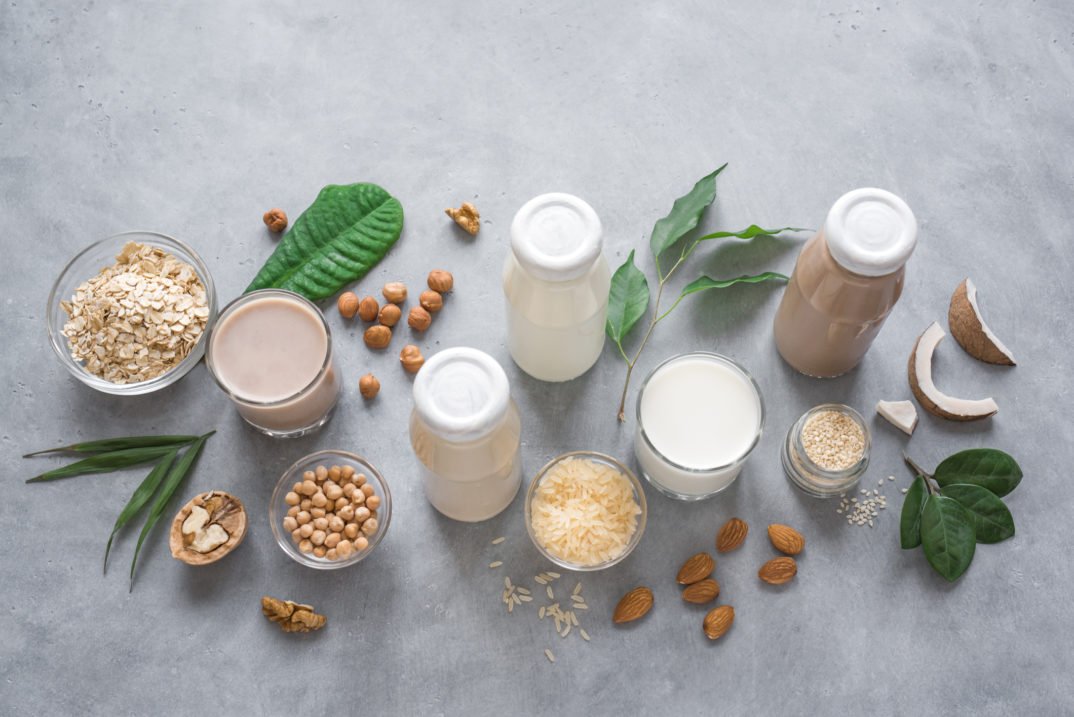Food & Beverage Trends / Sustainability
Why Everyone Is Ditching Dairy for Plant Based Yoghurts This Summer
With oat, almond, coconut and soy options now dominating store shelves, plant-based yoghurts are quickly becoming the go-to choice for health conscious and eco-friendly consumers.

With oat, almond, coconut and soy options now dominating store shelves, plant-based yoghurts are quickly becoming the go-to choice for health conscious and eco-friendly consumers.
CONTENT BODY (ARTICLE WRITEUP)
There’s a new revolution stirring in the dairy aisle — and it’s entirely plant-powered. As consumer demand for sustainable, ethical, and health-conscious food choices intensifies, plant-based yoghurt is stealing the spotlight. From creamy coconut blends to rich soy-based textures, these non-dairy alternatives are no longer niche — they are now a mainstream lifestyle pick.
Experts speculate that the shift isn’t just about lactose intolerance or veganism anymore. It’s about climate, consciousness, and clean labels. According to recent industry insights, yoghurt-style products made from oats, almonds, coconuts, or soybeans are soaring in popularity, offering consumers a taste of tradition with a modern, earth-friendly twist.
The food industry has responded in kind. Major brands have expanded their offerings, and supermarket shelves are brimming with options promising gut-friendly probiotics, lower sugar content, and zero animal products. Oat-based yoghurt, for instance, is loved for its creamy consistency and naturally sweet profile. Almond yoghurt, on the other hand, is a hit among calorie-conscious buyers, while coconut-based varieties appeal to those craving a tropical flair.
Environmentalists have also championed the rise of plant-based yoghurts. Traditional dairy farming has long been linked to high greenhouse gas emissions, deforestation, and water usage. Plant-based alternatives, particularly those derived from oats and soy, come with a significantly lower environmental footprint, making them an appealing option for climate-aware consumers.
Nutritionists note that many of these new-age yoghurts are fortified with calcium and vitamin D, ensuring that health isn’t compromised in the name of ethics. And as taste and texture continue to improve with innovation, the gap between dairy and dairy-free is quickly vanishing.
Beyond the supermarket, cafés and bakeries are incorporating plant-based yoghurts into breakfast bowls, smoothies, and desserts, solidifying their place in mainstream food culture. Influencers and wellness bloggers are pushing their favorites online, while brands race to create the next big non-dairy yoghurt trend — think cashew blends or hemp-based probiotic shots.
One thing is clear: plant-based yoghurts aren’t just a passing trend. They’re a reflection of a global shift — one that places the planet, personal wellness, and ethical food production at the forefront.

-

 US News1 week ago
US News1 week ago“She Never Made It Out…” Albany House Fire Claims Woman’s Life as Family Pleads for Help to Bring Her Home
-

 Entertainment7 days ago
Entertainment7 days agoXG Star Cocona Shares a Brave Truth at 20 — “I Was Born Female, But That Label Never Represented Who I Truly Am…”
-

 Entertainment7 days ago
Entertainment7 days agoSamba Schutte Reveals the Surprise Cameo in Pluribus That “Nobody Saw Coming”… and Why John Cena Was Perfect for the Role
-

 Tech1 week ago
Tech1 week agoAfter Losing Over $70 Billion, Mark Zuckerberg Finally Admits His Biggest Bet Is “Not Working” – Meta Plans Massive Cuts to Metaverse Budget
-

 Entertainment1 week ago
Entertainment1 week agoNika & Madison stuns global audiences as director Eva Thomas reveals why “resilience, not fear, drives Indigenous women on the run”
-

 Entertainment5 days ago
Entertainment5 days agoSaudi Arabia’s entertainment revolution… Red Sea Film Foundation CEO Faisal Baltyuor says he ‘wears many hats’ — but one mission drives them all
-

 Sports5 days ago
Sports5 days agoDodgers Stun MLB With Blockbuster Move, Sign Elite Closer Edwin Díaz to Three-Year, $69 Million Deal
-

 Entertainment5 days ago
Entertainment5 days agoTeyana Taylor wakes up to a Golden Globe call at 5 a.m.… ‘Am I dreaming right now?’ — and why she’s already begging Paul Thomas Anderson for more















